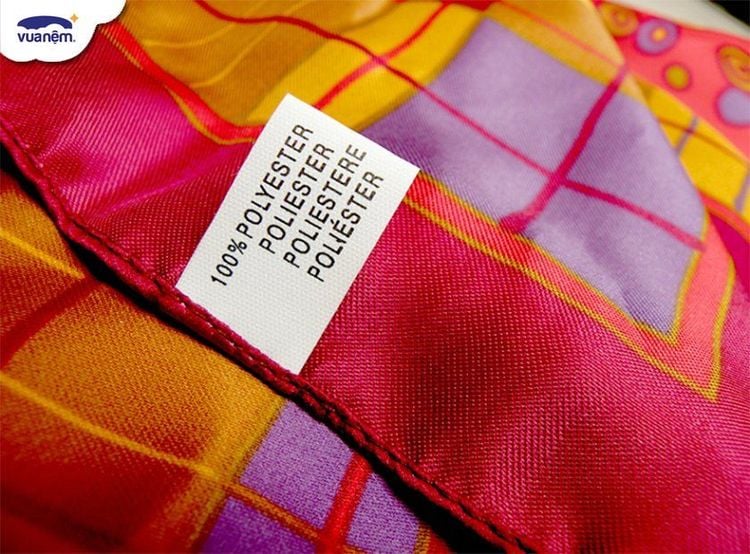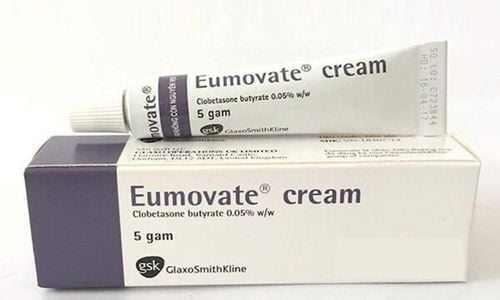This is an automatically translated article.
Polyester allergy is a form of fabric allergy, also known as textile dermatitis. This condition occurs when your skin changes after coming into contact with certain clothing or other fabrics.
1. What is an allergy?
Allergies are the immune system's response to something that cannot harm the body, also known as an allergen. Common allergens include grass, pollen, and dust, and some people may be allergic to certain fabrics like polyester.
Allergies are quite common. It is believed that genes and the environment also contribute to this condition. If both your parents have allergies, chances are you'll have them too.
People with allergies often have multiple symptoms. Allergic reactions usually include:
Sneezing; Rash; Itchy; Swelling. In some more severe cases, people can go into anaphylaxis. This is a serious reaction that can be life-threatening.
Allergies are diagnosed by skin and blood tests. Current treatments for polyester allergy include: Allergen avoidance, allergy medication and shots.
2. Allergy to polyester
Polyester allergy is a form of fabric allergy, also known as textile dermatitis. This condition occurs when your skin changes after coming into contact with certain clothing or other fabrics. Textile fibers or fabrics can cause skin irritation or, more commonly, allergies due to exposure to chemical additives used to treat the fabric. These substances may include detergents and dyes used by textile manufacturers.
Sweat or fur trapped between the textile fibers of the fabric can also cause skin reactions.

Dị ứng polyester là một dạng dị ứng vải, còn được gọi là viêm da dệt may
3. Polyester allergy symptoms
The symptoms of a polyester allergy, like most contact allergies, manifest primarily on the skin.
If you suspect you are allergic to polyester, look out for the following symptoms:
Rash at areas of polyester contact; Soft leather; an unusually warm feeling on your skin; Red spots on your legs; Rash around the body; The hand turns bright red; The itching ranges from mild to severe. In addition to skin reactions, fabric allergies can lead to a number of problems such as:
Chest tightness or pain; Shortness of breath ; Swelling. Polyester allergy symptoms can be made worse by a number of other factors such as:
Wearing clothes that are too hot; Uncomfortable clothing; Tight clothing; Poor personal hygiene; Fat.
4. Treatment of polyester allergy
Currently, researchers have not yet determined the exact status of polyester allergy. Therefore, there is currently no specific treatment for polyester allergic reactions. Until an accurate diagnosis is made, the preferred treatment is to avoid triggers.
The best way to avoid the symptoms you experience from polyester is to avoid contact with the fabric. Check product labels carefully, including for the following items that commonly contain polyester, including:
Tapestry; Bedsheets; Gym clothes; Sleepwear; Shirts and blouses; Kaki pant; Fur toys. Please describe your symptoms fully and express your concerns to your doctor if you suspect you have a polyester allergy. Several medications are used to treat polyester allergies, including:
hydrocortisone cream; Antihistamines ; steroid cream; calamine lotion; Corticosteroid cream. Your doctor can recommend a specific OTC medication if you ask for it. If these products are recommended by your doctor, you need to follow some recommendations before applying this method to treat your skin:
Wash yourself thoroughly with soap and warm water. Use mild detergents to avoid harsh chemicals that can aggravate allergic reactions. Apply wet gauze to the area to soothe the skin and reduce redness. Wash your hands thoroughly before and after applying any lotion or cream.

Các nhà nghiên cứu vẫn chưa xác định được chính xác tình trạng dị ứng polyester
5. Polyester alternatives and precautions
If you're afraid you're allergic to polyester, look for fabric alternatives: spandex, cotton, silk, linen, wool, denim, and some other natural fibers.
In fact, it is difficult to identify a polyester allergy. Often a person's skin reaction is not to the polyester itself but to the dyes used to make this item.
If you are having an allergic reaction, even if you do not know exactly if polyester is the cause or not, you should contact your doctor to determine the exact condition and provide treatment options. suitable.
In short, allergies are formed when the immune system overreacts to allergens. Therefore, there are many pathogens with different symptoms and levels, the most dangerous is anaphylaxis, which affects the patient's life if not treated promptly. Therefore, it is best to screen and test for allergens to best control the disease. Currently, Vinmec International General Hospital is one of the leading prestigious hospitals in the country, trusted by a large number of patients for medical examination and treatment. Not only the physical system, modern equipment: 6 ultrasound rooms, 4 DR X-ray rooms (1 full-axis machine, 1 light machine, 1 general machine and 1 mammography machine) , 2 DR portable X-ray machines, 2 multi-row CT scanner rooms (1 128 rows and 1 16 arrays), 2 Magnetic resonance imaging rooms (1 3 Tesla and 1 1.5 Tesla), 1 room for 2 levels of interventional angiography and 1 room to measure bone mineral density.... Vinmec is also the place to gather a team of experienced doctors and nurses who will greatly assist in diagnosis and detection. early signs of abnormality in the patient's body. In particular, with a space designed according to 5-star hotel standards, Vinmec ensures to bring the patient the most comfort, friendliness and peace of mind.
Please dial HOTLINE for more information or register for an appointment HERE. Download MyVinmec app to make appointments faster and to manage your bookings easily.
Reference source: healthline.com












